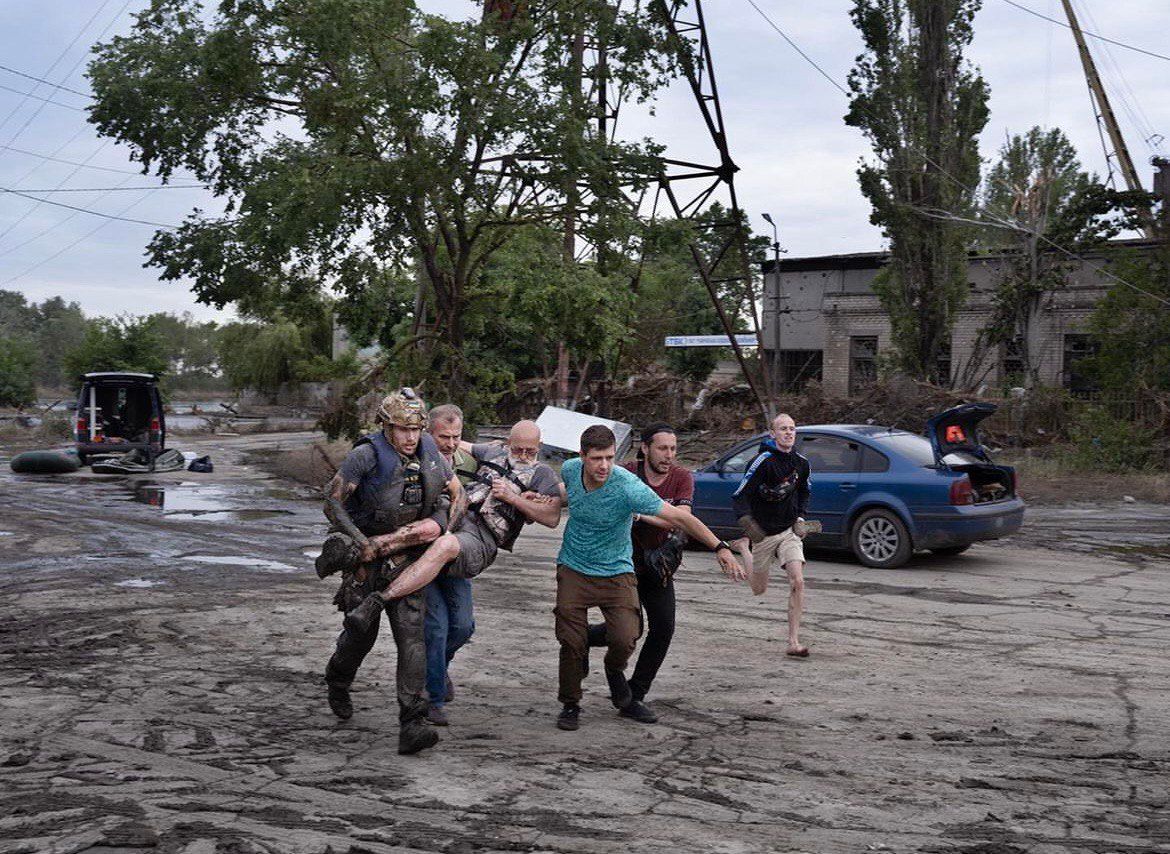Prosecutor: 98,000 Russian war crimes identified in Ukraine.
Yurii Bielousov, the head of the War Crimes Department of Ukraine's Prosecutor General's Office, has stated that his team had recorded 98,000 war crimes[1] committed by Russian forces in Ukraine. In an interview[2] with Interfax Ukraine published on Aug.
2, he said that 99% of war crimes are subject to a Ukrainian investigation and those guilty will be punished by the Ukrainian authorities. The remaining 1% will be prosecuted by international partners, who have an "auxiliary function."
At the beginning of the war, he said that "there were expectations that someone would intervene," and all Russian war criminals would end up in the Hague. However, the process of investigations is long, "and the volumes are such that no one but us will do it," he stated. Together with the National Police and Security Service of Ukraine (SBU), the Prosecutor General's Office has identified hundreds of thousands of Russian soldiers in Ukraine, he said.
Bielousov believes that there are "tens of thousands" of potential suspects. Since military personnel crossing a border during an armed conflict is "not a crime by international standards," not all Russian soldiers in Ukraine are suspects. If the authorities do prosecute Russian soldiers for crossing into Ukraine, Bielousov believes it will mean that Ukraine will not be properly fulfilling its international obligations.
He said that there are currently 386 Russians who have been charged with war crimes, out of which 54 have been convicted, according to Bielousov. Of those, most have been tried in absentia, and only 15 have been brought to Ukrainian courts and tried under a normal procedure. These are mainly "low-ranking soldiers, privates, or lower ranking officers," who are captured as prisoners of war, he said.
Those who have committed serious crimes are not subject to prisoner exchanges with Russia. Bielousov said he tells international partners not to conduct investigations in Ukraine, but teach the Ukrainian authorities best practices and give them the equipment needed. "Give us a 'fishing rod'," he added, referencing the saying 'teach a man to fish and you feed him for a lifetime.' "We can do everything ourselves."
The United Nations Commission of Inquiry on Ukraine published a report[3] in on March 16 that found Russia's relocation of Ukrainian children likely constitutes a war crime. On March 17, the International Criminal Court issued[4] arrest warrants for Russian dictator Vladimir Putin and Kremlin official Maria Lvova-Belova, for the forced deportations of children from Ukraine.
How Russian soldiers shared evidence of their own war crime Editor's note: This story is the first account of the Kyiv Independent's contributor, Anthony Bartaway, who witnessed Russian shelling targeting volunteers during relief efforts following the destruction of the Kakhovka dam and the ensuing devastating flooding in Kherson Oblast.
After Russian force...
 [5]
[5]
References
- ^ war crimes (kyivindependent.com)
- ^ interview (interfax.com.ua)
- ^ report (kyivindependent.com)
- ^ issued (kyivindependent.com)
- ^ How Russian soldiers shared evidence of their own war crimeEditor's note: This story is the first account of the Kyiv Independent's contributor, Anthony Bartaway, who witnessed Russian shelling targeting volunteers during relief efforts following the destruction of the Kakhovka dam and the ensuing devastating flooding in Kherson Oblast.
After Russian force...
(kyivindependent.com)